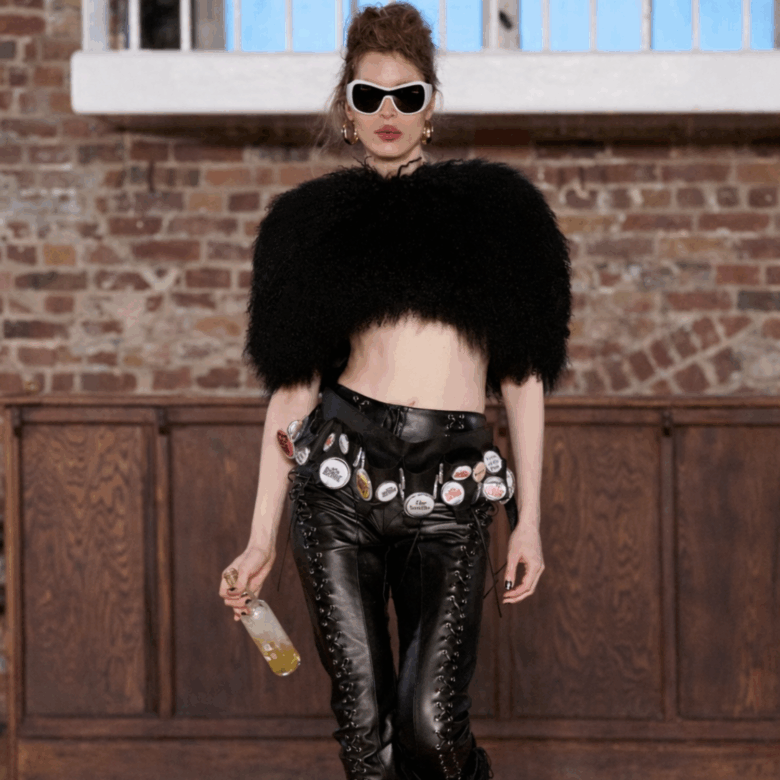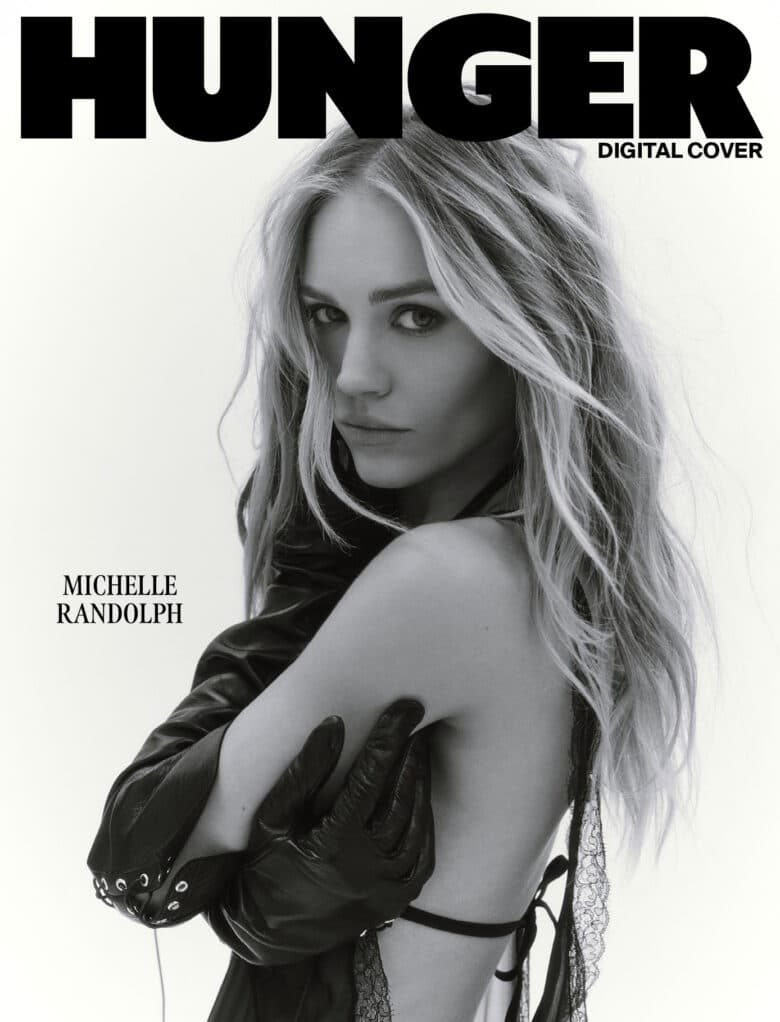“It creates the idea that everyone is doing better”: VTSS on social media’s impact on unattainable standards in the music industry

It’s the morning after my interview with VTSS (the moniker of producer and DJ Martyna Maja) and, to my surprise, I find I have an Instagram DM from her. The little blue tick beside her name not only legitimises her identity, but offers a small nod towards her industry prestige. “I woke up with so much anxiety after this [interview],” reads the first line. “I just really don’t want to sound negative!” The night before, we’d had a no-holds-barred conversation about the industry and Maja’s place in it, specifically the relentless cycle of music making that comes with being a producer living and working in an era where all creative output is short-lived. Her concern points to the toxic positivity that so many of us encounter on social media, and the constant need to depict life as filtered through rose-tinted spectacles. In the world of techno, that means posting nonstop about high-energy sold-out gigs, a life lived on the road and hedonistic lifestyles.

But Maja is more focused on being realistic about the pitfalls that come with the good times. “On Instagram there’s always the propaganda of success, and we only show the best parts of our gigs. We don’t show if people didn’t show up, we don’t show if people complain. It creates this idea that everyone is doing better, and you compare yourself with everyone else. I think it’s good to start talking about how not every gig is a sold-out amazing show.”
Born and raised in Warsaw, she came up through Berlin before settling in north London. She has a dog called Mauro (after the Italian electro producer Mauro Picotto, of course) and a penchant for futuristic nail art (her DM also includes details about her preferred nail tech). When we meet on Zoom, she exudes calm. Wearing an oversized black hoodie, her hair scraped back into a messy ponytail, she tells me that she has spent her day having a massage and browsing Nordic Poetry, her favourite vintage shop in London. For the past few months – and for the first time in years – she has been enjoying some much needed downtime, re-centring herself after the success of 2022’s ‘Circulus Vitiosus’, the acclaimed EP that solidified her reputation as one of techno’s most exciting names and which has had almost two million streams to date. “I am absolutely relaxed,” she tells me. “I don’t think it’s going to be easy to piss me off today. You’re welcome to try!”

We swiftly move through conversation of her life in Poland, including her stint as a law student in Krakow, and her first experience of that city’s Unsound Festival, which she credits with being responsible for her current career path. We briefly touch upon her time in Berlin before moving on to her relationship with London, which is where she has really found her home-from-home. “I love how broad London is. It gave me a lot of courage to experiment, just mixing genres, having fun with music and not caring about labels or belonging to one specific scene. I’m grateful to London for a lot of that freedom.”
But when I question what she’s currently working on things take a shift. She takes a long pause, then: “I’m going to be honest. I know I should probably make up a story, but I’ve been feeling a bit stuck.” She tells me that she’s been experiencing what she describes as a “creative block”, and so is taking some time out to refocus herself. To decompress without forcing herself to make music.
“I’m trying to take a few steps back and just think about where this block is coming from. That’s why I am trying to do a lot of other creative work this month, like learning the piano or painting. I even asked my nail technician to give me workshops.”
The moment of pause is giving Maja the opportunity to re-evaluate her processes. One example is her newfound sobriety while performing, adopted in a move to change her relationship with touring. “I just started associating my work, my biggest passion, my reason for everything, with hangovers. And being alone with a hangover at an airport at 9am having had four hours’ sleep – I just started to dread it. I started to get anxious before leaving for work,” she says. “I was taught that is how you do it. A lot of us are not extroverts or showmen, and alcohol helps with that.” Her new approach will come in handy for 2023, for which she has a stacked touring schedule, including a string of festival dates. Among these is the Wide Awake Festival, a celebration of counter culture that was established by the founders of the renowned venues Moth Club and Shacklewell Arms. It’s being held in south London’s Brockwell Park in May and the line-up also includes Caroline Polachek as headliner, as well as Jockstrap, Coucou Chloe and Shygirl. “With festivals, it’s so exciting to see so many friends and so many inspiring artists. Also festivals are often daytime gigs, and that is really good for me!”

With touring such a huge part of her career, she admits that it can be exhausting, especially when it comes to travelling abroad. “But I’m still grateful, it’s still exciting,” she quickly reassures me. Her eagerness to show appreciation is a side-effect of her honest approach. Unlike many people in music, or even showbiz more generally, Maja isn’t afraid to say it how it is. She’s authentic and doesn’t care for sugar-coating things, she’d rather be upfront. And this approach has meant she’s had some backlash on social media. “It’s challenging to talk about the downsides of DJing or the industry, as there’s always an argument that we live so many people’s dream lives.”
In reality, Maja’s honesty is a blessing. It’s important that we still have people who are willing to speak out about their industry, to hold a mirror up to it. It’s when people feel forced into silence that foul play and abuse have the opportunity to thrive. However, there’s no denying that the backlash has had an effect on her – her Instagram message is evidence of that – but despite this, Maja is keen to keep her voice. “I think the moment I lose this part of me, the human and authentic side, is the moment I would stop enjoying this [career]. I’m not built like that. The hate was always about how I am. I’m just doing my own thing.”

I can’t help but wonder if that backlash would be quite the same if it were a man speaking openly about the pitfalls of their career. There’s no denying that techno is still heavily male-dominated. “I think it’s gotten way better since I started,” Maja says of the gender imbalance. “There are a lot of women and in terms of bookings and pay, I think it’s good. There’s always going to be a lot of bias online when it’s a woman making a mistake versus a man making a mistake [during a set]. I saw it recently. Some woman was playing a shit set and the backlash she was getting! I’ve never seen a man getting backlash like that. It was disgusting. I was really upset by that.”
In my response to Maja on Instagram, I write that it was refreshing for someone to be so honest about life and work, and that we’ve all experienced low points in some capacity. The important thing is that we encourage and uplift artists and creatives to speak their truth in the way that Maja does. Her honesty doesn’t deflect from her ability to make incredible work (just listen to ‘Make You Scream’ if you need evidence), it just further enriches the listening experience because you know how much hard work went into creating it. I end our Zoom conversation by asking her about the future. What does that look like? Is there some state of being that she hopes to achieve? Poignantly, she offers this: “Someone, probably my therapist, once told me I should never regret being vulnerable because artists should be authentic more than anything. I hope for more authenticity, embracing our differences and personalities in this sometimes ugly industry around beautiful music and culture. And for myself I hope to finally recharge and live by the words of [French singer] Édith Piaf – ‘Je ne regrette rien’.”
Taken from HUNGER Issue 27: Call to Action. Available to buy here.

